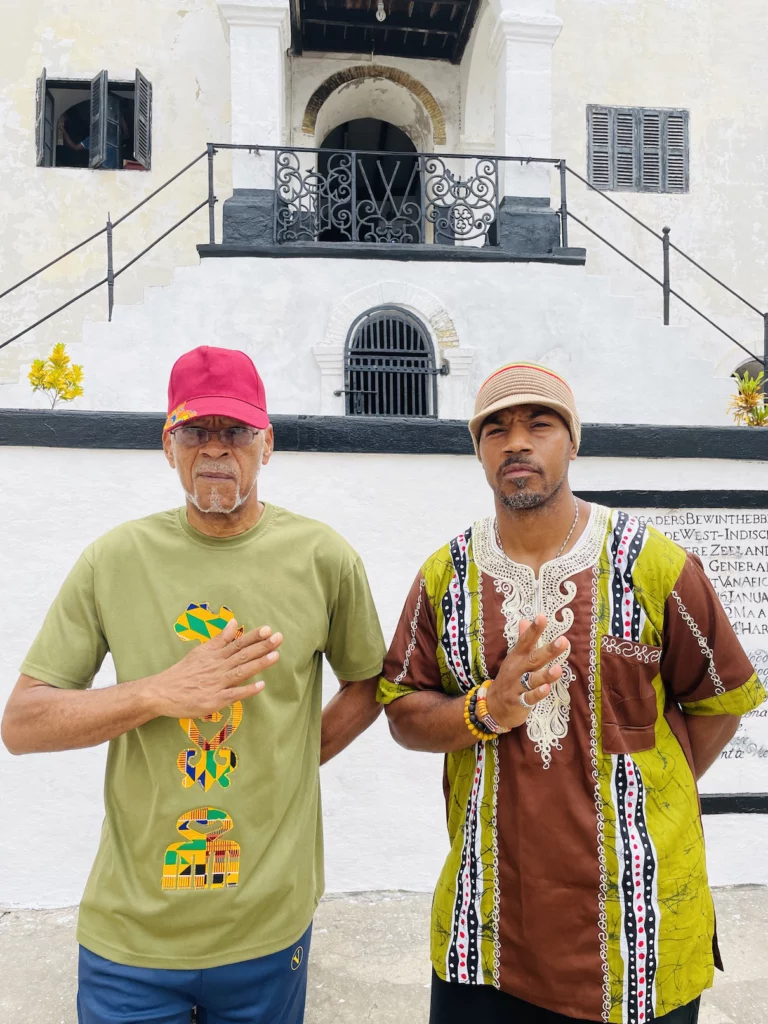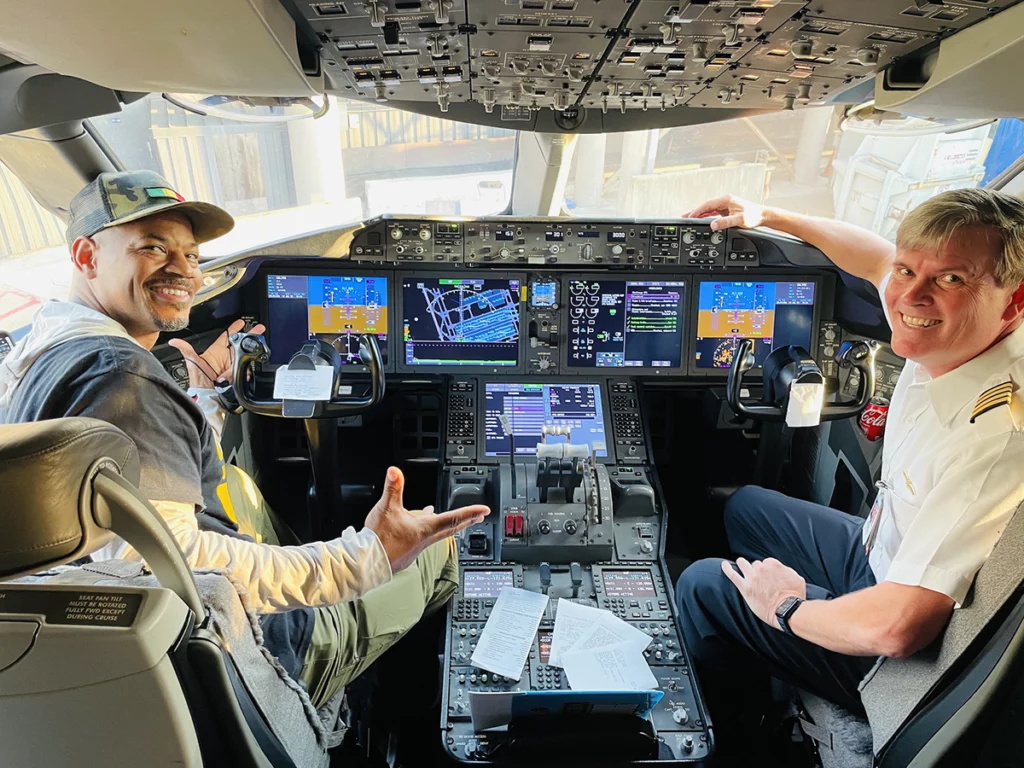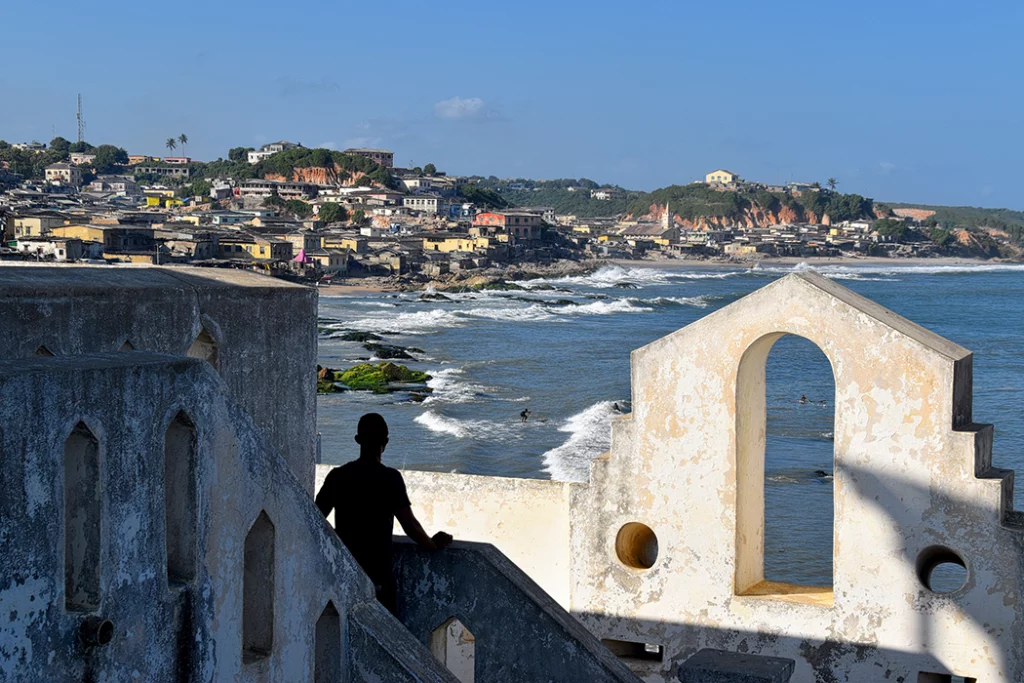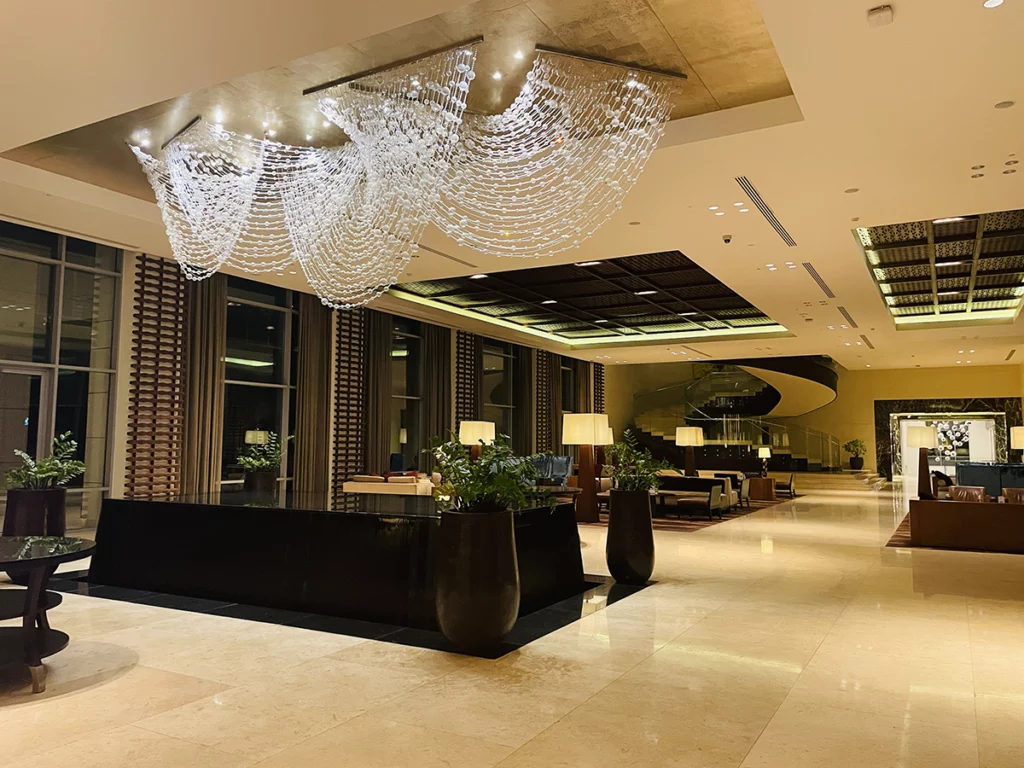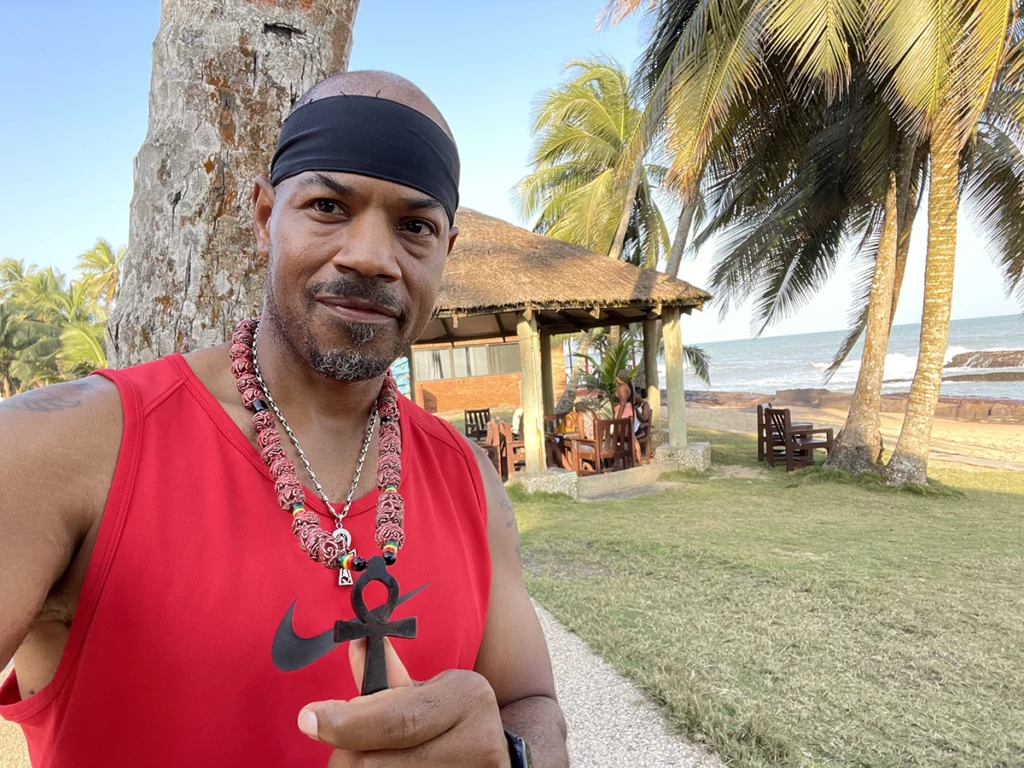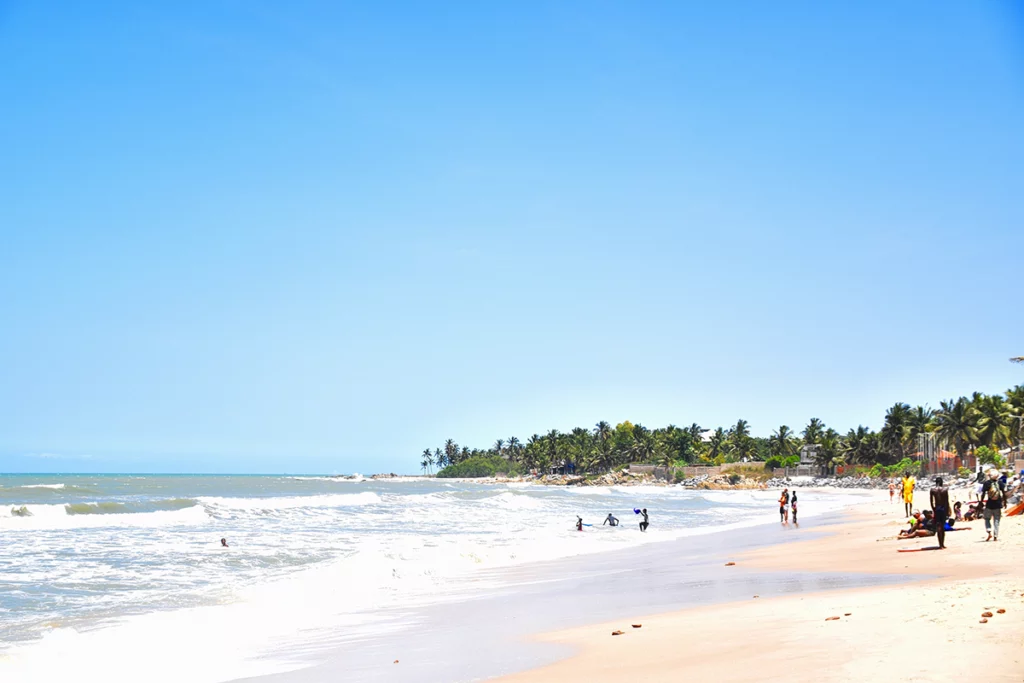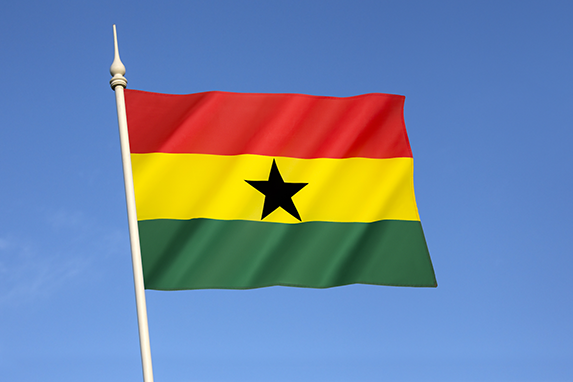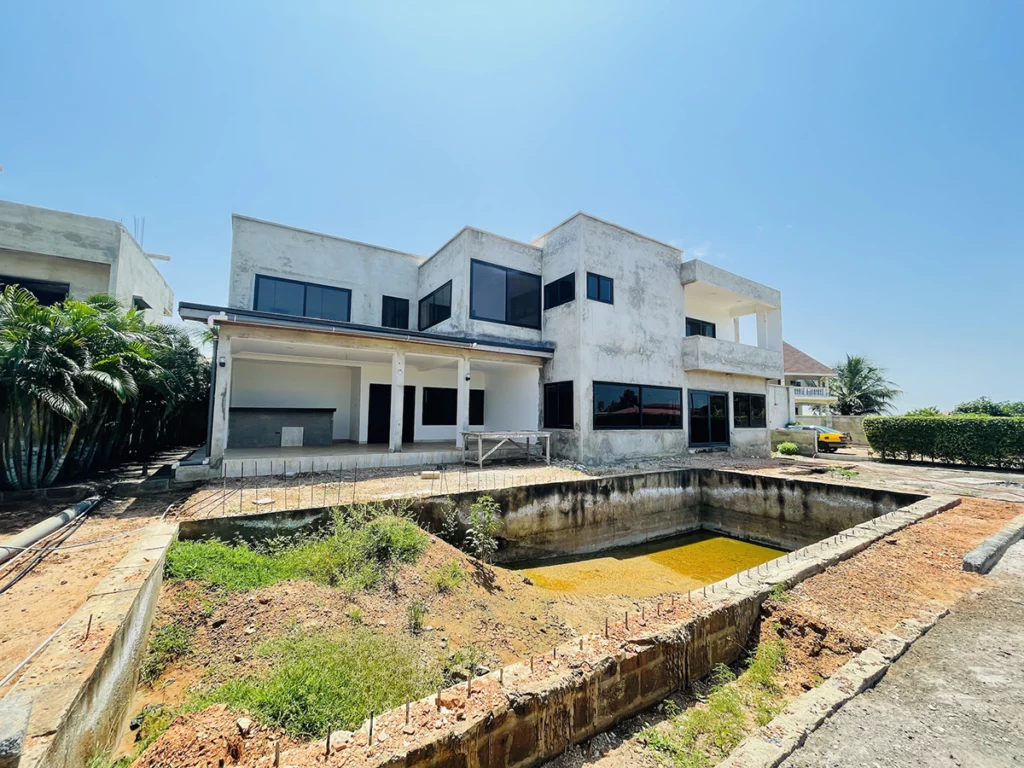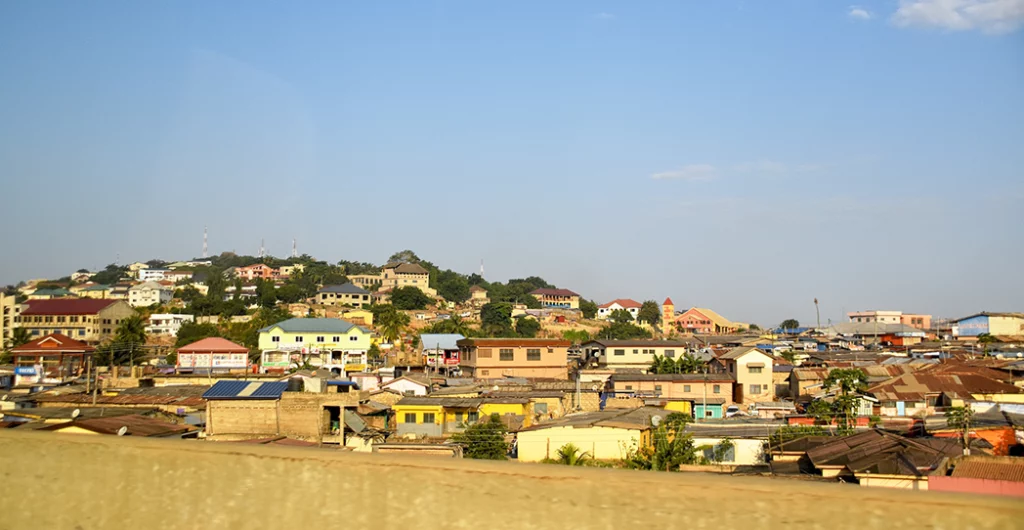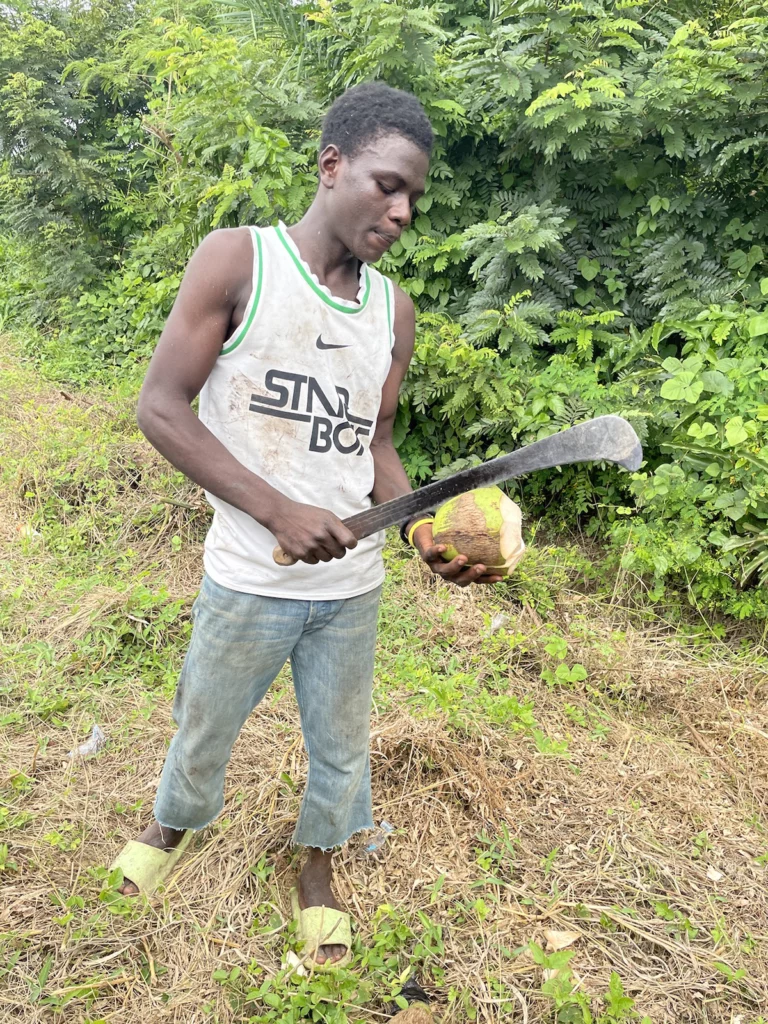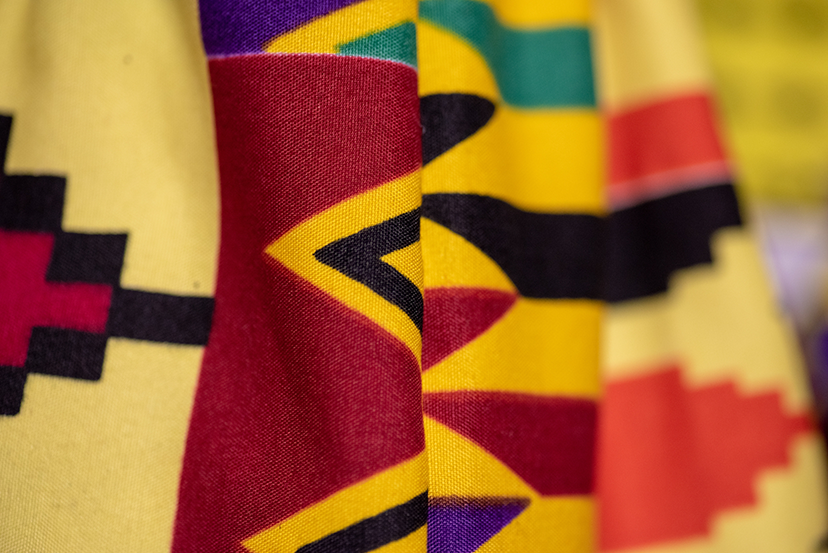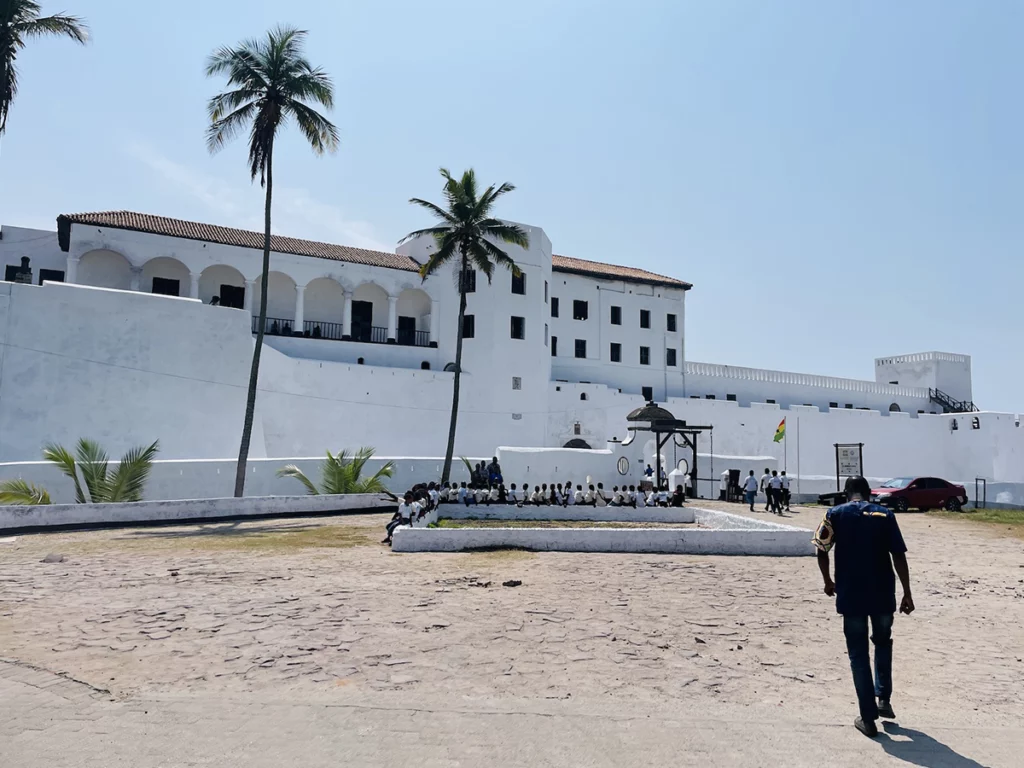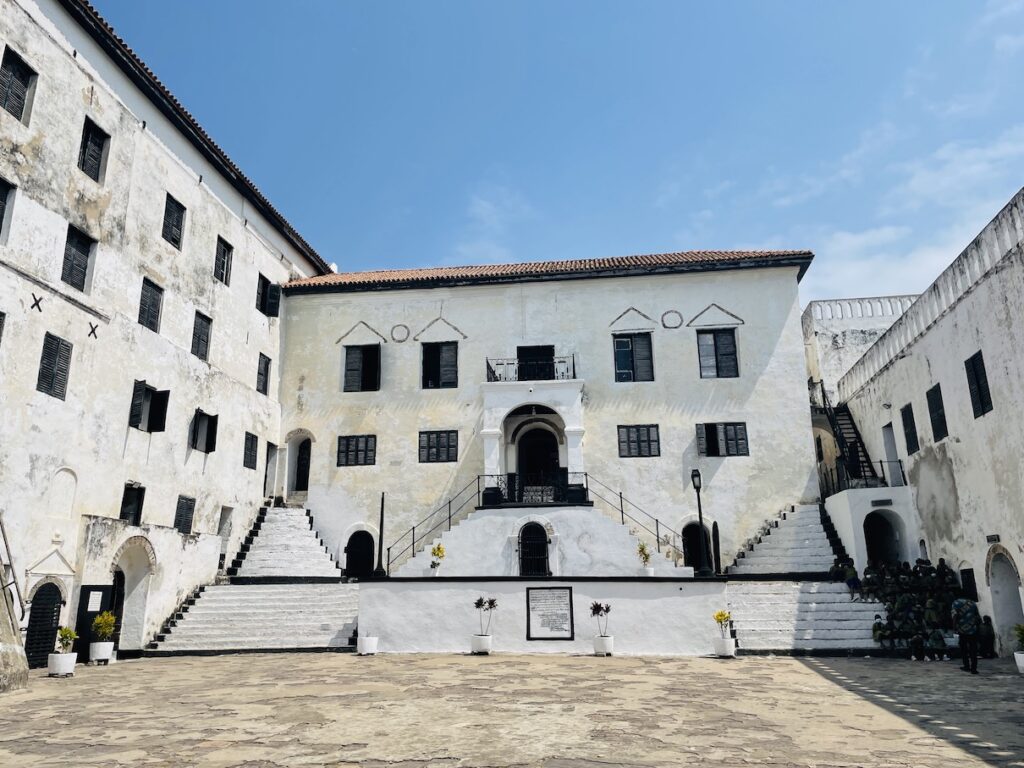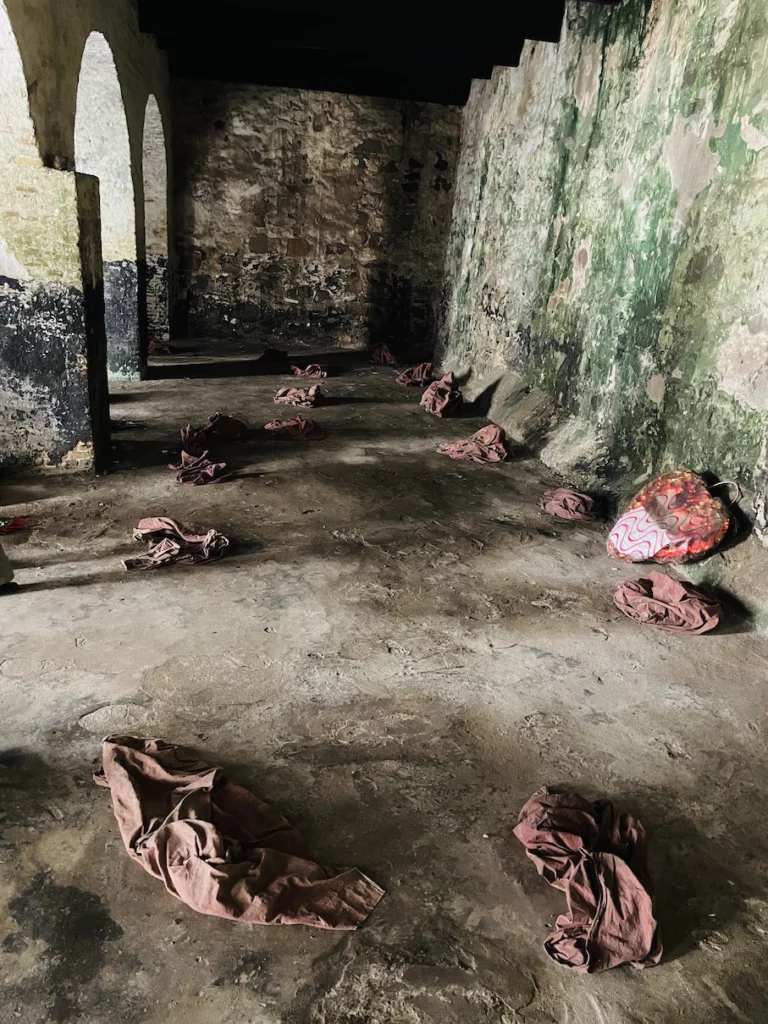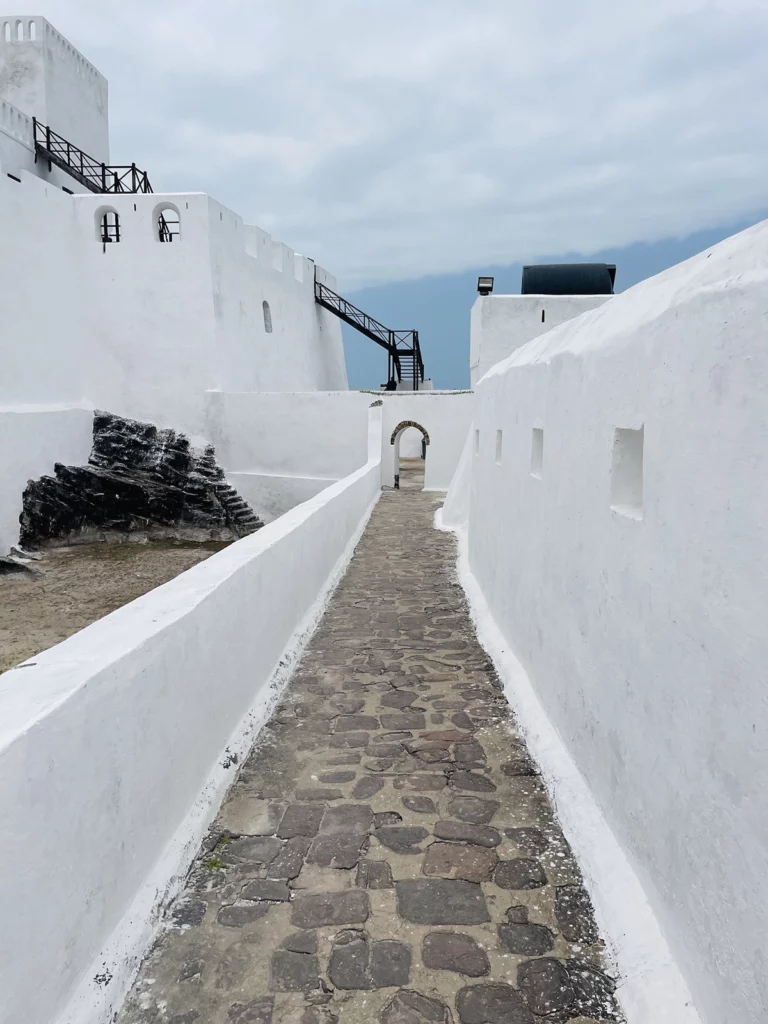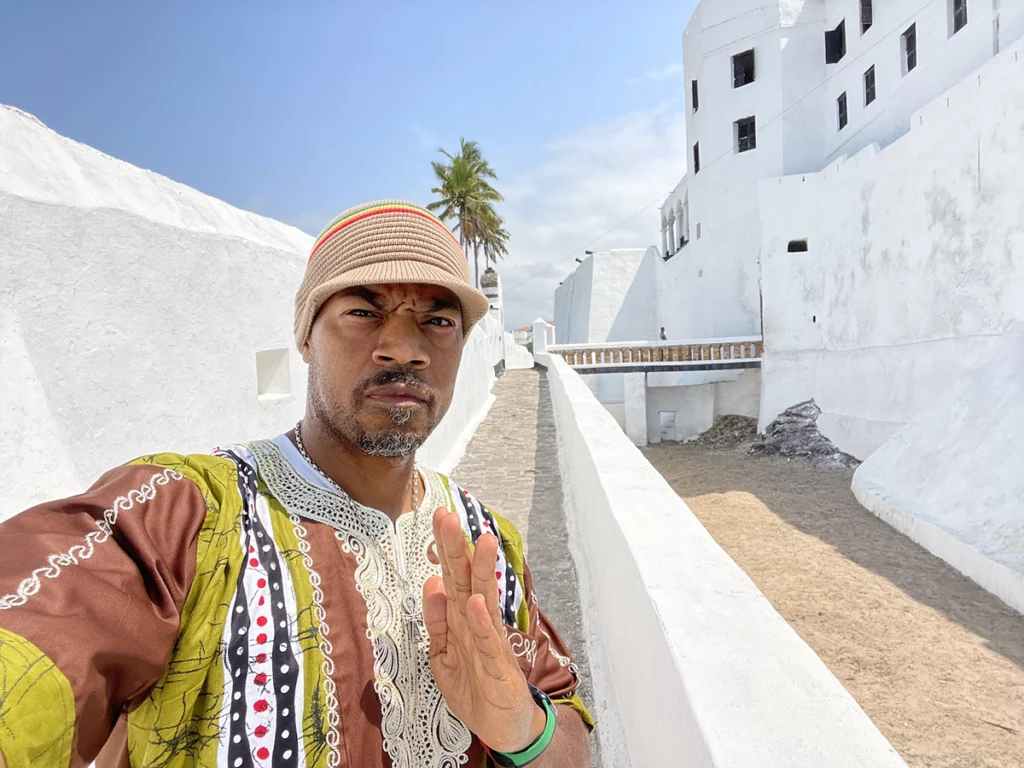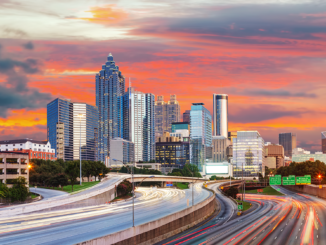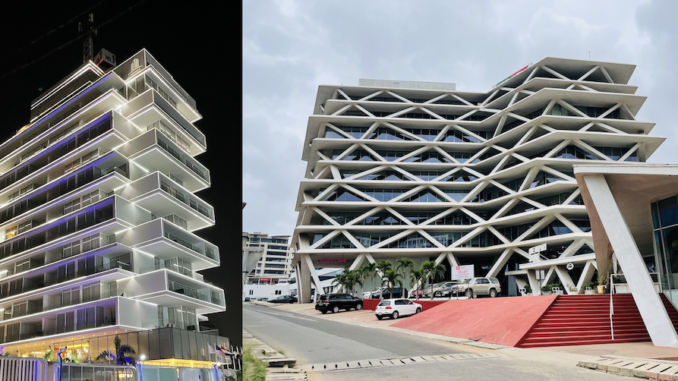
By Kimatni “Kofi” Rawlins and Randi Payton
“A people without knowledge of their past history, origin, and culture is like a tree without roots.” — Marcus Garvey
After exchanging ideologies with Ghanaian friends for years and listening to their stories of triumph, community, and inspirational arts through creative fashion and music, it was finally time for my father and me to pay homage to the first sub-Saharan country to attain independence from its European colonizer. Rightfully so, we researched our intended path to truth and knowledge and embarked on another Nomadic Journey seeking cultural sustenance in the vibrant and historical country of Ghana.
Welcome (Akwaba) to Ghana
On March 6, 1957 Ghana became independent from its British rulers. All we could think about while there was the greed, atrocities, and evils that men do, whether it was the French, Swedes, Germans, Danes, Dutch, English, Portuguese, or Spaniards. With that, we suggest that every black man, woman, and child across the globe visit West Africa at least once to vicariously live through the eyes of their forefathers and ancestors. For two weeks we traveled around the West African region meeting with various educators and scholars to discuss the touch points of the Transatlantic Slave Trade, the spiritualism of Kumasi, and modern-day Accra, which is ripe with opportunity. And with a plethora of friendships and connections established in the U.S., the mutual Ghanaian relationships allowed us to experience the land from a local’s perspective, providing supplementary insight and context. Yes, reparations are respectfully due!
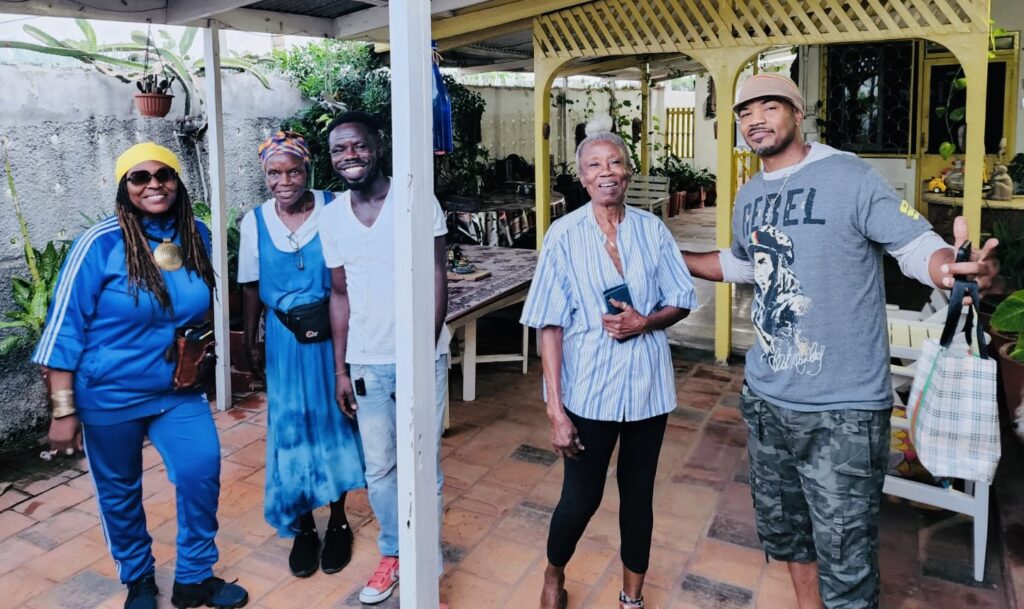
Planning Your Trip
From Washington, D.C. you can take a direct flight on United Airlines from Dulles Airport to Kotoka International Airport in Ghana’s capital city of Accra. Interestingly enough, the pilots were astonished that I had flown 2.5 million miles on The Star Alliance, so they invited me to take the captain’s chair before we took off. My status also allowed me to upgrade us both to first class, which made a world of difference on the 10.5-hour flight. This is why it’s always best to stick with one airline and hotel chain if you plan on becoming a jetsetter. Do not hop around from airline to airline chasing the cheapest fares.
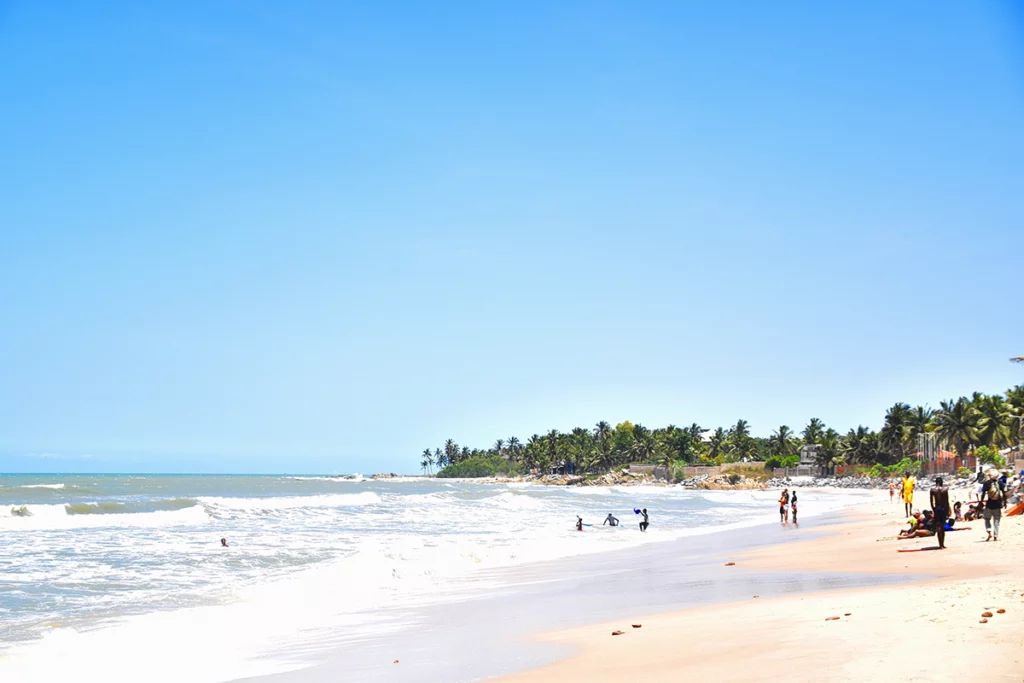
Medical facilities in Ghana are limited, especially outside Accra, and Malaria is common. Therefore, try to prevent illness by getting the proper shots, whether required or recommended. As a vegan I resort to natural remedies to ward off sickness and fortify my immune system, but when dealing with viruses it is best to protect yourself. The following should be on your list of travel tasks:
- Yellow Fever Vaccine (Required for the Ghanaian Visa; good for ten years)
- Malaria Pills (Required)
- Typhoid (Required. Good for five years)
- Tetanus, TB, and Polio (as recommended by your doctor)
- Immunoglobulin or Hepatitis A Vaccine (Strongly recommended. The vaccine requires re-immunization 6-12 months later)
- Hepatitis B Vaccine (Highly recommended)
- Meningococcal Vaccine (Optional. Discuss with your doctor)
Lastly, start your visa process early because receiving your return documents and passport may take longer than expected. I’ve had friends reach out and say it’s been over a month when the standard processing time is 15 to 20 days. And you cannot walk into Ghana’s U.S. Embassy since everything is handled through the mail.
The Fascination of Accra
Accra is simply fascinating. The modern, technological African nation is full of vitality, business growth, artistry, music elevation, investment opportunity, and more. If you are looking for trendy Afrocentric gear, head to Wear Ghana in the Haatso area. If you crave reggae vibes, then JamRock Restaurant and Lounge in Oak Plaza Hotel will be your destination of choice, especially on Friday nights when owner Elizabeth Olympio-Emanuel hits hard with live roots rock bands. Also, look into +233 Jazz Bar & Grill for live High Life music and Nuru Lounge for today’s Afrobeats tempo. Labadi Beach is perfect for when you need to slow down from the hustle of the inner city while meditating by the Atlantic Ocean. If cravings for a genuinely immersive plant-based experience take precedence, then make sure to visit Tatale Vegan Restaurant in Osu, the city’s business district. Our friends Kefa Ab and Apoanab Akoulug came down from Kumasi to commune and feast on vegan fufu. For additional Accra exploration here is a short agenda:
- Kwame Nkrumah Mausoleum and Memorial Park
- National Museum of Ghana
- W. E. B. Du Bois Memorial Centre for Pan-African Culture
- Artists Alliance Gallery
- Independence Square aka Black Star Square
- Christiansborg Castle
I’m also a runner and health advocate; accordingly, travel fitness is essential for trekkers constantly on the go like myself. You will discover even more interesting places when running the city while taking in local sights, sounds, and people. Regardless of where your Nomadic Journey leads, remember that your temple will always require daily activity whether jogging, hiking, swimming, walking, or biking. Keep moving people.








Kumasi and the Asante Region
After a week in Accra it was time to set course for the historical splendor of Kumasi, the capital of the Asante region (or Ashanti). Five hours outside of Accra, the “Garden City of West Africa” is the second largest city in the country that Asantehene Osei Tutu, the first ruler of the Asante Kingdom, founded. Blessed with rich moralities, we visited the MANHYIA PALACE MUSEUM of Asante royalty (built by the British as a gift in 1925), the Ghana National Cultural Centre, the Prempeh II Jubilee Museum of Asante history, and the Kumasi Fort. However, the most intriguing aspect of the Asante is how women dictate Royal law and Queen Mothers appoint the next King.
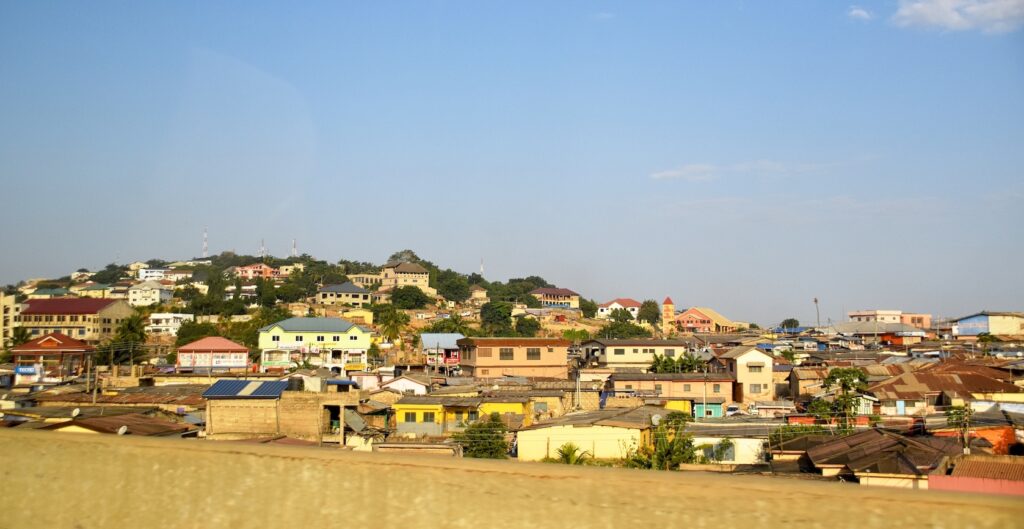
The Akan is the largest ethnic group out of six in Ghana, comprising eight clans represented by animal spirits. Number four is the Eagle (my symbol) which signifies mightiness. Kumasi is also famous for the magical art of hand-woven Kente cloth, which is traditional to this area, specifically Bonwire. Its origin stems from the legend of Ota Karaban and Kwaku Ameyaw who observed the intricate details of a spider’s web and reported their findings to the King. With fervor, he adopted the pattern into Kente. Lastly in Kumasi I learned that males and females are given Asante names according to the day of the week they are born. Hence, I am Friday-born and rightfully assigned Kofi.
Coconut Love and Energy
Leaving Kumasi en route to Kakum National Park (or anywhere in Ghana), there is a simple and healthy meal that can be had from the side of the road or fruit stands. The coconut water’s purities restore and replenish natural electrolytes and the soft, fleshy meat provides healthy fats and energy. Young coconuts are omnipresent in Africa, allowing for quick and convenient hydration and fuel. Keep in mind that by the time these large, green coconuts arrive in the States, they have shrunk, turned brown, and become hard which is not ideal. Eat clean, people.
Spiritual Healing Waters of the Assin Manso Slave River
We absorbed powerful and emotional moments at the Assin Manso Slave River where our Mothers and Fathers took their last bath before trekking to the European-built slave dungeons. “This river is the blood of my blood,” we chanted while washing our hands and faces with the spiritual strength and blessings from our African ancestors. The remembrance of our people’s sacrifices to ascertain that we live on with the courage of lions, the strength of elephants, and the wisdom of owls will remain eternally within my conscious mind. At the Slave River, our forebears sacredly gifted us the therapeutic power to pass on peace and blessings to all of our people. Thus, make sure to pay respects when you visit Ghana.
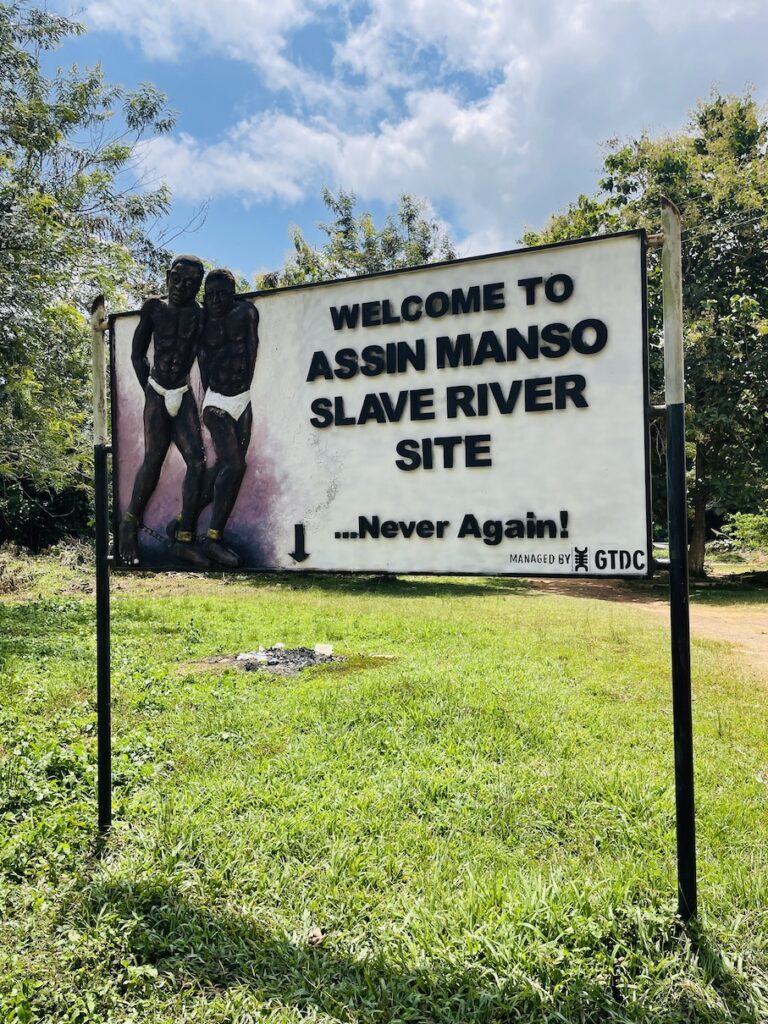
A Saddened Visit to the Abominable Slave Dungeons of St George’s Castle in Elmina
There were roughly 65 forts and castles built in West Africa, with 56 stemming from Ghana alone (21 are still standing). In 1482 the Portuguese built St. George’s Castle (Elmina Castle), the first European structure erected in Sub-Saharan Africa. It was the largest and oldest castle, and today is a UNESCO World Heritage Site. St. George’s would later exchange hands between the Dutch and the British, firstly to protect their gold mining interests and then to hold captured Africans for months in horrid conditions before that wretched Middle Passage on slave ships where they would never return home. We explored the grounds and rooms, which are full of haunting memories. Dreadfully, 600 men would share quarters separately from the women. If an enslaved man posed a threat or propensity for rebellion, he was put in a particular cell with the sole purpose of starving him to death. Equally despicable was the Catholic Church installed atop the slave quarters. Unbelievable!
More than 400 women shared a quarter which consisted of various smaller rooms where they vomited, urinated, defecated, and menstruated without proper ventilation, drainage, and light. Those who died the months before boarding the ships were thrown into the ocean. Many of the unfortunate were cleaned and brought to the Governor’s lodging (the size of a 1-bedroom apt), where they would be raped and sent back into the dungeon in shame. Pops and I looked through the “Door of No Return” and then gazed at the beach where pilgrims hold memorial ceremonies in remembrance of our descendants that perished in the Transatlantic Slave Trade.
Coconut Grove Beach Resort
In Elmina, we settled in at the Coconut Grove Beach Resort, an excellent selection for your overnight stay. The property sits atop a hill and provides both standard rooms and cottages. Our location was another perfect place for a running tour through the villages of Elmina before visiting the slave dungeons. The crowded streets were full of verve and vitality as I trotted by. Yet, there is much poverty here, so prepare to humble yourself and contribute by purchasing the locals’ arts and crafts.
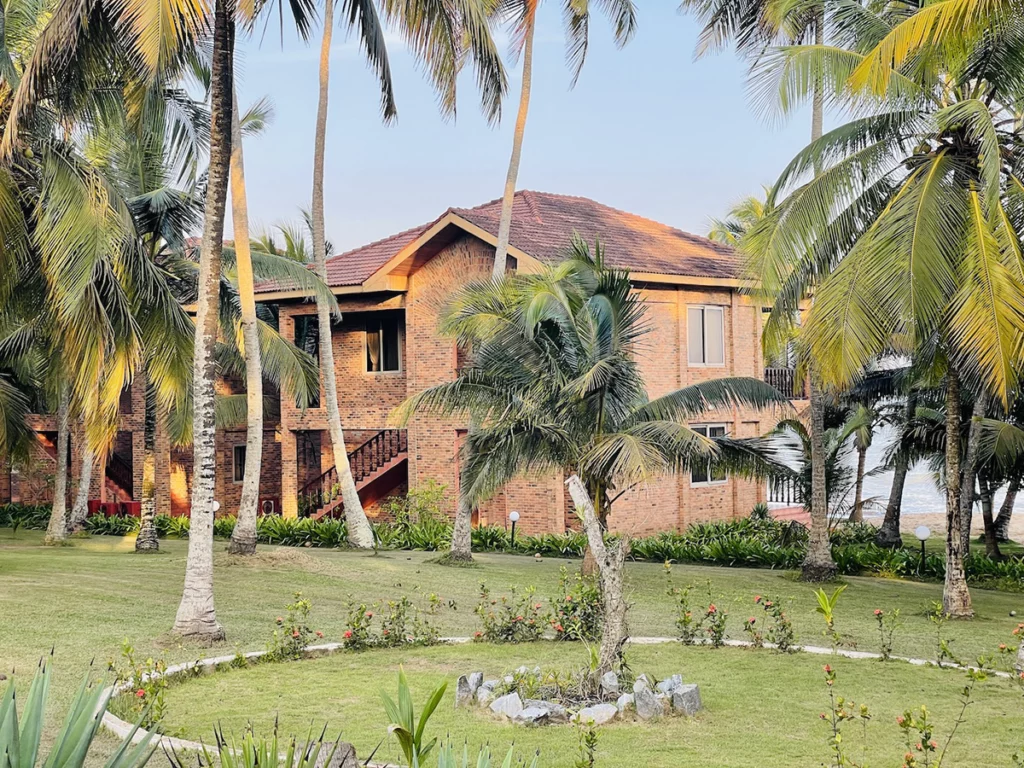
The African Ancestral Wall in PramPram
Welcome to the African Ancestral Wall in PramPram, an hour’s drive from Accra. Here you can honor the bravery and leadership of some of the most influential Black men and women that walked this Earth. From Dedan Kimathi, Marcus Garvey, and Robert “Nesta” Marley to Wangari Maathai, Malcolm X, and Angola’s skillful negotiator and fighter Njinga Mbandi, most of your revered heroes are highlighted on the African Ancestral Wall.
If you are interested in land acquisition in Ghana, then PramPram is a great place to start. We drove out to visit Delbert Cook and Aziz Gueye Adetimirn, who moved to the small town from the U.S. while learning about land and infrastructure opportunities in Africa. For example, one owner was selling four plots at $15,000 each, which looked like an acre. Depending on material quality and amenities, a size able cash home can be constructed for around $200,000. More importantly, there are no mortgages in this area. Once construction is completed, you will own the property outright. Now, patience is required as the roads to get to your crib are more for off-roading, so a Wrangler or a similar utility vehicle will be required until the city paves them. We met five people who traveled from places like London and California to settle in PramPram. Isn’t life amazing?
Boundless is the Exploration of Life
No matter where my soul travels universally, whether Jamaica, Japan, Ethiopia, or Ghana, I will always find similar individuals to build and elevate with. A likeness of mind, likeness of spiritual beliefs, and likeness of purpose while coexisting with the universe temporarily in this physical form are the mantras and values my energy gravitates toward when seeking enlightenment. Live the life you love and love the life you live while traversing the land incessantly to discover new traditions, customs, divinely enhancing doctrines, and nourishing culinary experiences. One love!
